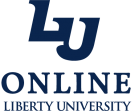 Behind the scenes of every great school, there are professionals who are focused on providing the best instruction and applying the most effective curriculum to students. Between every classroom there must be some level of coordination to make sure that, as students grow, their education grows with them at an appropriate pace. Earning an online curriculum and instruction degree is the fastest and surest way to qualify for a career as an instructional coordinator or designer. Curriculum coordinators review and evaluate the learning materials adopted by public school systems that must meet both state and federal standards. As curriculum materials become more standardized to meet government mandates, instructional specialists will enjoy record demand for their knowledge. This online degree program is well suited to teachers who enjoy analyzing instructional materials and measuring the efficacy of educational texts.
Behind the scenes of every great school, there are professionals who are focused on providing the best instruction and applying the most effective curriculum to students. Between every classroom there must be some level of coordination to make sure that, as students grow, their education grows with them at an appropriate pace. Earning an online curriculum and instruction degree is the fastest and surest way to qualify for a career as an instructional coordinator or designer. Curriculum coordinators review and evaluate the learning materials adopted by public school systems that must meet both state and federal standards. As curriculum materials become more standardized to meet government mandates, instructional specialists will enjoy record demand for their knowledge. This online degree program is well suited to teachers who enjoy analyzing instructional materials and measuring the efficacy of educational texts.
THE CAREER PATH
Curriculum and instruction professionals seek to research, develop, and implement curriculum changes that lead to positive outcomes for students. They focus on understanding the learning styles and behaviors of students and providing instruction that addresses those needs and builds on the strengths of students. Teachers can choose to deepen their understanding of instruction and curriculum in order to advance their own skills in the classroom and apply theories of curriculum design to better serve their students. They can also choose to take their careers to the next level with coordinating and designing instruction by working with teachers and school administrators outside of the classroom in one of two roles, according to the United States Department of Labor:
- Instructional Coordinators – Professionals that are responsible for evaluating the effectiveness of curriculums and techniques that are established by governmental bodies or institutions by observing classrooms, reviewing test data, and interviewing school staff. They may specialize in a particular grade level — such as elementary, middle, or high school — or in particular subjects or specialized groups such as special education or English as Second Language (ESL).
- Designers & Technologists – Professionals that are more focused on the appropriate, developing use of technology and classroom materials.
The growing emphasis on evidence-based curriculum and instruction strategies means that the demand for qualified professionals is expected to increase in the coming years, by nearly 10% over the next decade. Professionals with a knowledge of curriculum and instruction are rewarded for their expertise, with an average salary of more than $60,000 each year.
WHO IS THE IDEAL CANDIDATE?
Have you ever wondered how the trajectory of your classroom education was planned out over the course of 12+ years? Have you ever wondered about why certain subjects were taught in certain grades, who decided on those subjects, or how they knew what teaching methods worked best? If you’ve found yourself asking questions like these, you may be interested in curriculum and instruction studies. Curriculum and instruction professionals are those professionals who are passionate about student achievement and work to research and develop school policies that allow achievement to happen. If you want to take your experience in the classroom to the next level, to work on a bigger scale to ensure student success, then you may want to look into curriculum and instruction as an option for you.
Teaching professionals may be interested in advancing their knowledge of curriculum and instruction in order to benefit their students through more strategic educational methods and classroom coordination. A degree in curriculum and instruction will allow teachers to be more analytical to assess and adapt their own instruction methods and can advance their communication skills to explain the curriculum needs to teachers, staff, and administration. Teaching professionals that seek to advance their career in order to work to address curriculum and instruction outside of their own classroom will need to be prepared for a slightly different role than typical teachers. Unlike most teachers, instruction professionals usually work year-round for research and preparation of curriculum. These professionals need the leadership skills to serve as mentors to teachers and the ability to build relationships and make hard decisions in a variety of settings.
WHAT SHOULD I LOOK FOR?
Most online curriculum degree programs are offered at the master’s level. However, you do not need to have a bachelor’s in education to earn this advanced degree. If you’re looking to enter education, this could be a solid career choice. Online curriculum and instruction degree programs are often targeted toward elementary, secondary or postsecondary instructional levels. Some may also be geared toward corporate training or adult education. The latter often deal with issues such as literacy or digital learning.
Popular emphases in this degree area include the development of course materials for special audiences, such as adults in workforce training programs, and the design of an online learning curriculum. You could also choose to specialize within selected demographics, such as the special education population.
As instruction becomes more standardized, the need for coordinators to review and bundle the best learning materials continues to grow. After earning your curriculum and instruction degree online you could find work at a public or private school. Your scope of responsibility could cover a single school or an entire school district. Plus, employment growth is predicted to be higher than average.
You could also work for a college or university, providing curriculum services and online learning programs. Curriculum and instruction specialists also work for government, social service or nonprofit agencies that operate global training programs, such as the Red Cross. Your career options are not limited to work inside K-12 schools. Curriculum specialists may work inside any agency that develops and delivers educational programs.
COST
Since a bachelor degree will be required before a master’s degree can be completed, professionals will want to make sure to choose a program that suits their goals and lifestyle in order to get the most bang for their buck. Expect to pay between $30,000 and $50,000 for an online bachelor’s in this area. An online master’s in curriculum and instruction will cost less—around $16,000, on average. Keep in mind, however, that the most affordable online master’s in this area cost under $12,000. Although the path to curriculum and instruction isn’t easy, the outcome is rewarding for professionals who are passionate about providing a quality education to their students.


